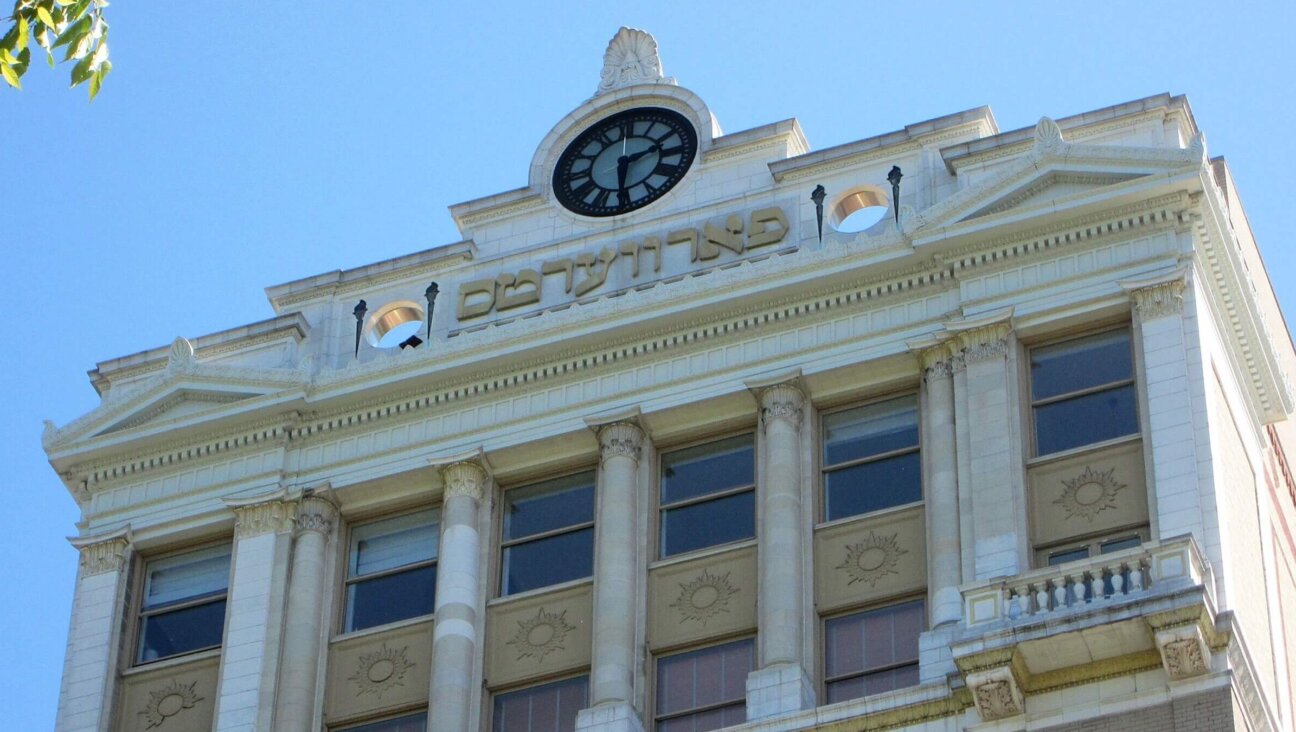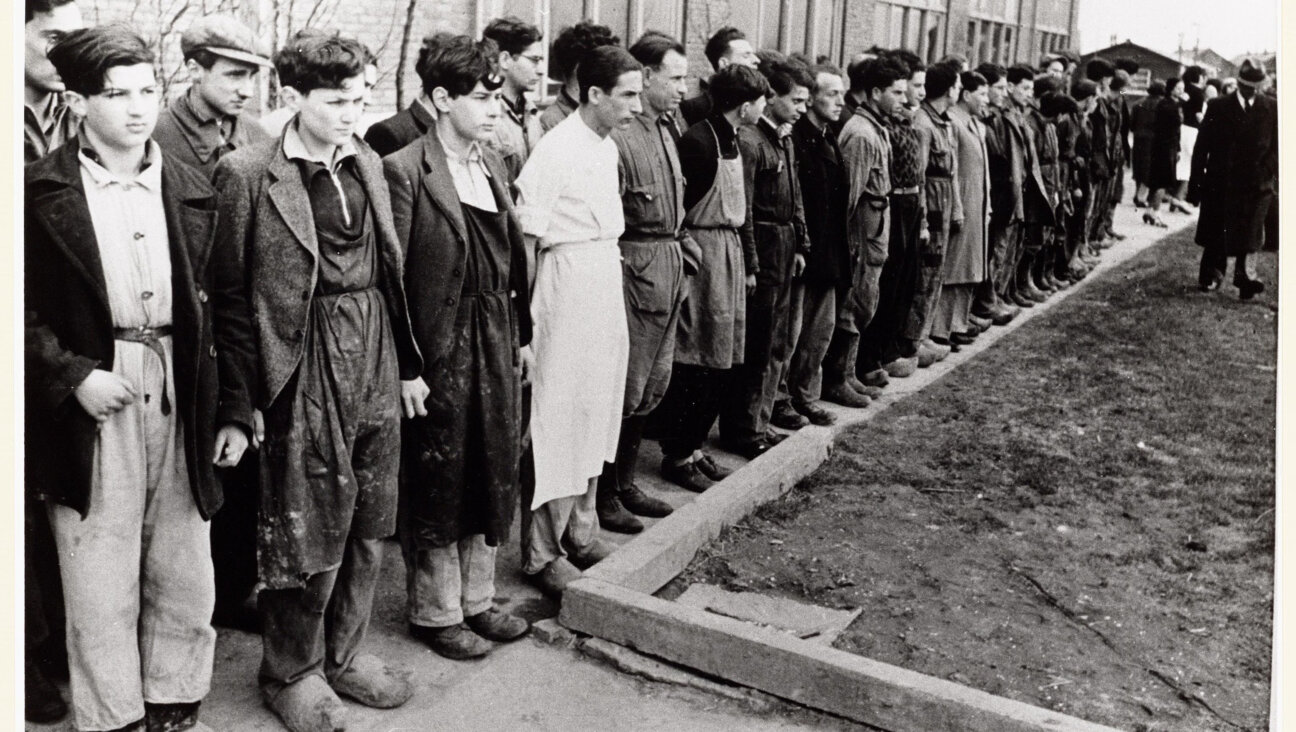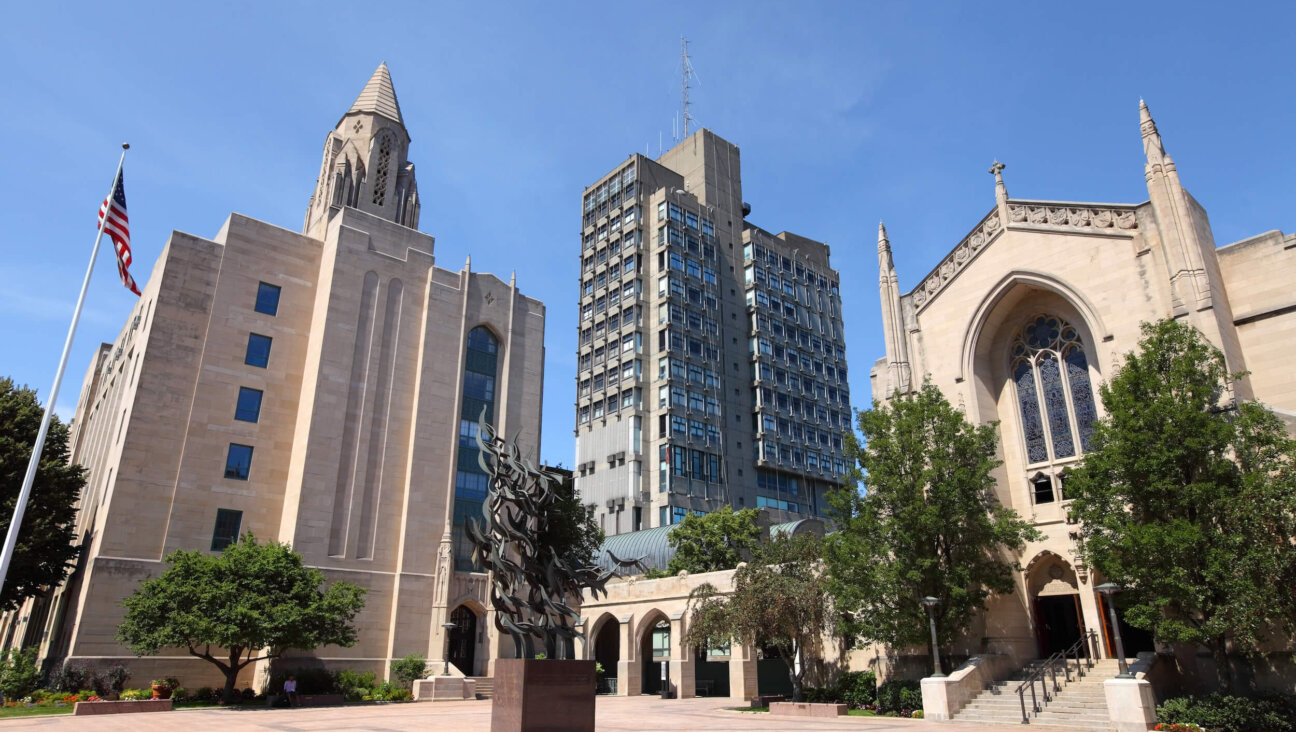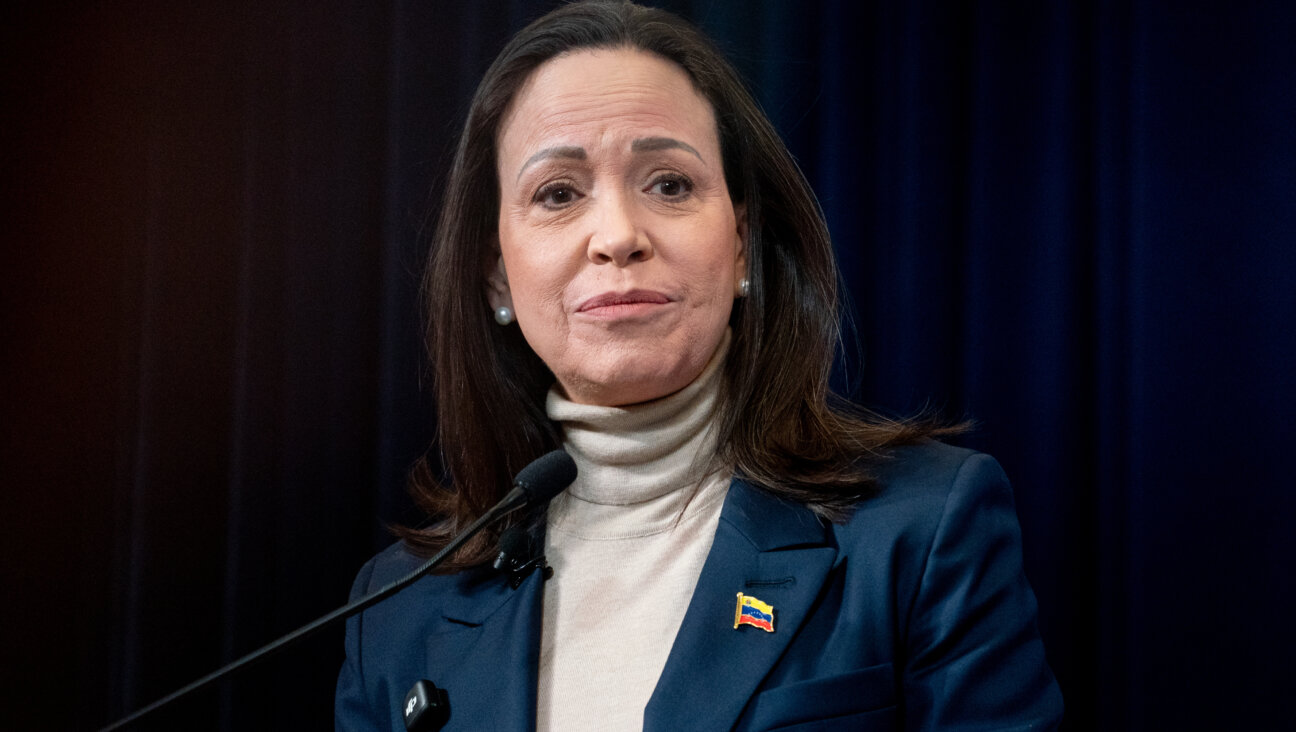Why I Chose To Attend Public High School Even Though I’m Ultra-Orthodox

Graphic by Angelie Zaslavsky
Noticing the black velvet yarmulke atop my dark brown hair, many of the students at my new school assumed that I was Muslim.
In the beginning of my freshman year, I enrolled in Baltimore City College High School (“City”) in Baltimore, Maryland after attending ultra-Orthodox schools or “yeshivas” in Maryland for the prior 14 years. At the time, I was the only ultra-Orthodox Jewish or “Yeshivish” kid attending this urban public high school. The student body of approximately 1,300 teens is 85% African-American and approximately 4% Jewish. Almost all of these teenagers, including several of the Jewish ones, had never been exposed to ultra-Orthodox Judaism until they met me.
Making the decision to enter the doors of this type of educational environment is not typical for someone of my background. Although both of my parents attended public school, they became observant in college and spent several years thereafter in Israel pursuing advanced religious instruction. As a married man, my father spent ten years learning the Talmud at Ner Israel Rabbinical College in Baltimore. By the time we were considering my high school options, we were a staunchly Yeshivish family — and families like ours did not send their children to public school. My insular community expected me to prioritize my life exclusively around the study of the Babylonian Talmud — 63 tractates, 6,200 pages of rabbinic law in Aramaic and Hebrew. While I value and respect my 2,000-year-old heritage, I simply did not have that devotion. I wanted to attend a public high school to explore viewpoints which were absent from the pages of the Talmud. I understood there were divergent opinions and philosophies regarding all physical and metaphysical matters, yet I had only been exposed to the uniform thinking of my Yeshivish surroundings. More importantly, I felt like I deserved an opportunity to find personal fulfillment and to contribute to the welfare and advancement of people, even though I could not conform fully to all of my community’s strict dictates.
I knew my rabbinic leadership would never sanction such a transition. So, my parents and I did not ask them — not our beloved family rabbi who now lives in Lakewood, New Jersey and not the much-esteemed Baltimore communal rabbi who lives right next door to us. Had we consulted with either, we could fully expect a response of horror and the following litany of stern predictions:
“You will go off the derech (leave the fold)”
“There are too many bad influences in public school”
“There is a lot of anti-Semitism in public school”
“You can always catch up on secular learning later”
I had always been told in yeshiva that generations of Torah-observant Jews left the faith because they did not have a proper Jewish education. I reasoned that I had already received a proper Jewish education and would continue to do so privately with a religious learning partner, chavrusa, of my father’s choosing.
Being the only Yeshivish student at City resulted in many interesting situations — some of which were expected, while others were completely unforeseen. I knew I was going to be bombarded with questions such as, “Do you believe in Jesus?” Why don’t you celebrate Christmas? Why do you wear those white strings? What is kosher? However, none of those questions made me uncomfortable. If my faith is firm, then it should be able to withstand any challenging questions. If the Torah is true, then I should be able to examine, define and defend it. Ironically, by attending public school and having all these interactions, I now own my Judaism and my relationship with my creator; my religious convictions are no longer being enforced or imposed by rabbis or rabbinic educators in grey beards, dark suits and black fedoras.
While I anticipated all the religious queries, I never foresaw the unconditional acceptance I would receive on a daily basis at City. I have never once experienced any anti-Semitism. My Christian guidance counselor proudly calls me her “Jewish son.” My best friend at school is a devout Pakistani Muslim. We won a cake-baking contest for chemistry class during our junior year; I baked it at my home and he ate it because he knew he could trust my “kashrus.” I started and still currently run the first Jewish Student Union at City. Wearing a tallis, prayer shawl, I read the Megillah of Esther from an authentic scroll with fellow Jewish students on Purim of my sophomore year; I was pleasantly surprised by how many curious and even admiring non-Jewish students and teachers attended my leining. I plan to read Megillah again this year.
The only negative unforeseen circumstance I experienced at City was how much tutoring I needed in secular subjects, having been consistently told by my community that Talmudic knowledge is transferable to all types of learning. It clearly is not; deciphering Talmudic outlooks only goes so far when you are, for example, confronted with appositives in grammar, a literary analysis of Steinbeck or Shakespeare, differential Calculus, scientific theories of climate change and website development technology.
Other adjustments at City were less pronounced. I became Andrew instead of Avrohom Yehuda. My usual Yeshivish dress code of dark pants and a white dress shirt was replaced with a school uniform of khaki pants and a black shirt. Rather than being surrounded by symbols of my faith like faded photos of venerated 20th century European rabbis, all City emblems revolve around the school mascot which is a medieval knight. This is because City is fondly known as “The Castle on the Hill,” due to its imposing gothic structures, stained glass, gargoyles and 150-foot tower.
By being in City, my outlook became more diverse as I encountered climate change, gender studies, Black Lives Matter, Muslims and the Hmong for the first time. All these new voices had value and prompted action. I joined clubs and volunteered for organizations with cultural, religious and ethnic perspectives that did not necessarily revolve around a divine revelation on the sandy summit of Mt. Sinai. I contributed time and skills to scouts, science fiction, veterans and building an Auschwitz exhibit. I debated politics and social justice with CNN journalist Fareed Zakaria and Stanford sociology professor Robb Willer. Rather than blindly aligning my thoughts with an immutable theological narrative I now also see, hear, observe and reach my own conclusions regarding matters of knowledge and authenticity.
Most everyone at City now calls me Avrohom Yehuda or “AY” for short. And I am no longer alone. There is one other Yeshivish boy attending City this year; he is a transfer student from the prestigious Philadelphia Yeshiva. In addition, there are a handful of Modern Orthodox students. We all get along well and even joke about requesting a room from the school administration so that we can daven the afternoon prayers or “mincha.” I frequently miss my old friends from yeshiva and the comradery of commonality we shared. Thankfully, I now have that again.
I initially had to hide my public-school attendance from my Yeshivish neighbors and friends because I knew their condemnation would be severe. Walking home from high school each afternoon during my freshman year I made sure my backpack strap covered the school logo on the top left side of my uniform shirt. By my sophomore year, my parents felt comfortable enough to share our “deep, dark family secret” with neighbors and friends; this revelation generated a wide range of communal responses. Some of the feedback was clearly negative. One community activist rabbi accosted my father in synagogue or shul after services one Saturday morning, grabbing his arm and insisting that I be sent to a yeshiva—any yeshiva. One childhood neighbor and friend told me he was no longer able to come to my home since his father said I was a bad influence. Sadly, none of these encounters surprised my family since we know our community fears assimilation above everything else and would never condone an act which could possibly lead to spiritual oblivion. In addition, even while acknowledging challenges in the yeshiva educational system, our community is generally resistant to radical change or innovation.
In contrast, some of our family’s friends were supportive and acknowledged the need to educate me according to my strengths, rather than forcing me into an artificial academic box. I was only too happy to validate that approach by sharing what I learned at City with my community. At a local shul, I displayed a model of Auschwitz I built as part of my school’s International Baccalaureate or IB personal project. A former 6th grade “rebbe” from yeshiva brought his son to my house to see my project; we spent over an hour discussing the Holocaust history and literature I learned at City. The rebbe even sang Yiddish songs of hope his mother sang while she was in Nazi slave labor camps in Poland.
Now in my penultimate semester, I recall fondly the years I have spent at City. My favorite subject is anthropology which I started studying in 11th grade and continue to study this year. I think I can relate well to the study of human diversity, since I am distinct to many individuals outside of my community and I have been exposed to an assortment of cultures at City. In fact, my first anthropological assignment was to survey people praying in a synagogue on Shabbos morning. When I reported back my findings to the class on Monday morning, the feedback was one of real interest and many inquisitive questions.
This past month, I have applied to two colleges and am investigating chavrusas, in both locations; I wish to major in anthropology and minor in Jewish studies and would like to research religious discrimination experienced by the Hmong in college. I am still Yeshivish despite the naysayers who predicted my immediate religious demise at the start of high school. Along with earning an IB diploma at the end of this year, I have completed a 10,000-word research paper on science fiction themes in the Babylonian Talmud, which culminates three years of intense learning and analysis of various Talmudic tractates. Reflecting on the upcoming culmination of this most unusual path taken by my family with respect to my education, a close friend of my mother surmised, “Only the Altmans could get away with this.”
Overall, I believe my decision to attend a public high school, though in direct defiance of my community, is ultimately consistent with my upbringing. When I find myself in need of validation or even consolation, I reflect on the words of one of the greatest Talmudic masters of the 2nd century CE, Shimon Ben Zoma: “Who is wise? One who learns from every person.”

















